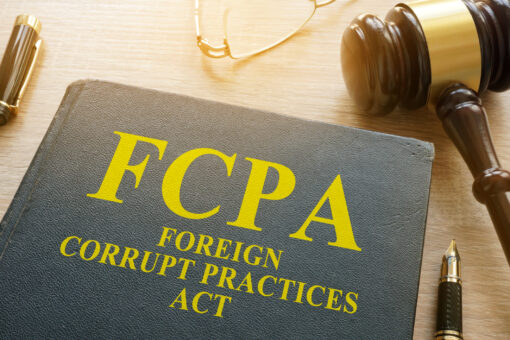Operating beyond the borders of the United States? The Foreign Corrupt Practices Act (FCPA) is a pivotal piece of legislation you must familiarize yourself with. Instituted as a federal law, it holds American enterprises and citizens accountable, especially when they attempt to influence foreign officials through bribes to secure business ventures.
Moreover, the FCPA mandates businesses to maintain clear and precise financial records, making any effort to camouflage illicit deals punishable. Keep reading to learn the basics of this Act and what to do if you are charged as a result of it. Contact Chambers Law Firm at 714-760-4088 for a legal consultation with a powerful federal defense attorney.
FCPA: A Closer Look
In 1977, due to the rampant illegal corporate inducements to foreign officers – especially in places where such bribes were legalized – the FCPA came into existence. These malpractices inflated the costs for businesses, hampering their ability to compete on a global scale, and smeared the image of American businesses internationally. The U.S. government, through the FCPA, sought to outlaw such payments and restore the credibility of American businesses on the world stage.
Administered by both the Securities and Exchange Commission (SEC) and the Department of Justice (DOJ), the FCPA’s core lies in its anti-bribery and accounting stipulations. Essentially, it forbids U.S. entities and those foreign businesses listed on the U.S. Stock Exchange from:
Offering anything valuable to foreign officials, political entities, or candidates with the intention of gaining their support to facilitate business. Engaging in indirect bribes – where even if payments are made to intermediaries, knowledge of its eventual use for bribing foreign officials can lead to charges.
Understanding Anti-Bribery and Accounting Mandates
The anti-bribery regulations strictly prohibit any attempts to illicitly influence foreign officials to gain or maintain business, especially when linked to governmental contracts. A broad spectrum of inducements, be it cash, properties, shares, or even trivial items, falls under this category. It’s not just about direct bribes to gain contracts; even indirect benefits, like reducing your company’s tax liability through illicit payments, are forbidden.
In parallel, the accounting stipulations necessitate that businesses hold records which transparently reveal their financial transactions. This is to preempt companies from cloaking prohibited payments. Consequently, firms need to ensure they have stringent checks and balances to preempt fraud and corruption.
More About FCPA’s Reach
It’s essential to understand that the definition of illicit bribes isn’t limited to monetary transactions. Inducements can manifest as gifts, travel coverage, loans, charitable contributions, or political donations. No monetary threshold is set by the FCPA; even minor payments, under specific contexts, can be viewed as a violation.
Furthermore, FCPA’s grip extends to indirect dealings and third-party transactions. For instance, should your company leverage endorsements from influential personalities to sway foreign officials, such actions could breach the FCPA.
Are There Any Exceptions?
Yes, there are some. Not all transactions with foreign officials are deemed illegal. Payments associated with “routine governmental actions”, which are everyday tasks executed by an official, remain outside the FCPA’s ambit. This includes routine tasks such as acquiring permits or ensuring postal deliveries.
However, even in these exceptions, maintaining transparent accounting is imperative. Overlooking an entry, even if the payment qualifies as an exception, can be a violation in itself due to the mismatch in the records.
Facing Allegations? Here’s What You Can Do
The ramifications of an FCPA breach are severe, including hefty fines and potential imprisonment. If you find yourself amidst such allegations, a meticulous examination of all details is paramount.
The FCPA itself offers two defenses. One could argue that the payments were permissible under the local laws of the foreign official’s nation. Alternatively, one could contend that the transaction was a genuine business expenditure.
However, every situation is distinct, and a blanket approach doesn’t work. Partnering with a seasoned legal team like Chambers Law Firm can be invaluable. Reach out to us for an in-depth case analysis at 714-760-4088.





